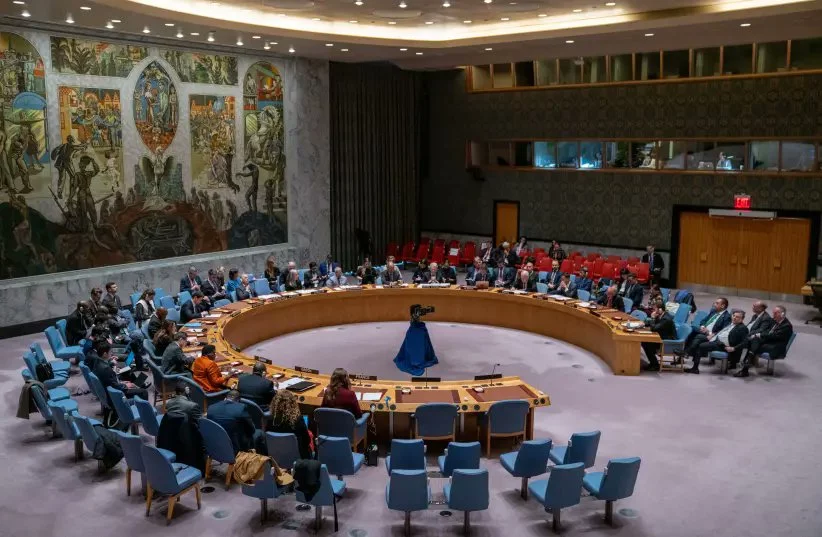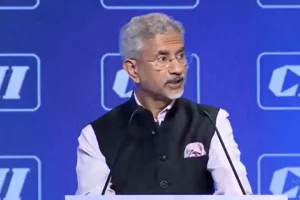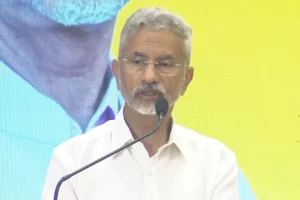Transnational and Cross border Terrorism has multidimensional aspects. Radicalisation and ways to deal with the destructive violence unleashed by terror groups either operating under clandestine state-sponsorship or on their own, is a serious threat to Humanity across the Globe. There is also a pressing need now for a global effort to lower temperatures generated by religious intolerance.
If one broadly looks at ongoing conflicts in various parts of the world, an underlying religious divide seems to be at their root. The Sunni-Shia problem in South Yemen and parts of Afghanistan, Pakistan, the Jewish-Arab Muslim standoff in Israel, the Christian versus Muslim conflict in the Tigray region of Ethiopia, the polarization between Russian speaking adherents of the Russian Orthodox Church in Eastern Ukraine and their Western Ukraine adherents of the Catholic / Ukrainian Orthodox faith, the clash between the Christian majority area of South Sudan and the Muslim majority area of its northern neighbour, Sudan, the disturbed environment in the Uighur Muslim area of Xinjiang where serious allegations of denial of religious rights and other human rights violations by the political authorities have been leveled, suggest that a global effort led by the United Nations needs to be launched to energetically promote dialogue and mutual accommodation among different religious groups in the spirit of “Live and Let Live”. The promotion of peace, international goodwill and cooperation is the basic aim underpinning the UN Charter.
It is a stark anomaly that while all Religions profess that the God they worship is an Infinite Repository of Love, Forgiveness and Peace, religious and political leaders at times justify recourse to violence in His Name. Guru Gobind Singh, the revered 10th Guru of the Sikh faith said “Sanch Kahoon, Sun Leyo Sabhe, Jin Prem Kiyo, Tin hi Prabh Payo.” (Listen everyone to what I say in truth, only those who Love, attain communion with the Lord). In the Islamic Faith, Almighty Allah is the Embodiment of and Forgiveness. In the Christian Tradition, Christ had said: “God is Love”. The Hindu Belief system emphasizes that only Love and Devotion are accepted in the Court of the Supreme Lord.
Saint Paltu who lived in Ayodhya, the birth place of Lord Rama in the eighteenth century (1710-1780), says “Paltu unchi jaat ka, mat koi kare hankaar; Sahib ke darbar mein kewal Bhakti-Pyar” which translates as :”Let no one be proud of one’s caste; In the Court of the Lord, only Devotion and Love count”.
Bulle Shah, the famous Sufi Saint from pre-partition Punjab, says “Lakh Ibaadat kare je koi, bane na kade Namazi; Jad tak Pyar na hosi palle, Rabb na hosi Razi” which translates as; “A person offering ritual prayers even a hundred thousand times does not become a true worshipper; Until there is love in one’s heart, the Lord’s acceptance of prayer is not forthcoming”.
The same core belief is present in other religions. Therefore, if people professing different religions remain true to the core teachings enshrined in their respective faiths and do not allow themselves to be persuaded to become pawns in power-conflicts aimed at dominance over any faith other than their own, an atmosphere of greater peace and mutual goodwill can be sustained.
True adherence to the essence of one’s religion should engender a strong sense of universal brotherhood and sisterhood and enhance unity amongst all fellow beings. The inspirational words of the Rig Veda “Vasudhaiva Kutumbkam” i.e. “The World is one Family” engraved in the Entrance Hall of the Indian Parliament and considered the most important moral value in Indian society, undoubtedly have special relevance for today’s global community.
The famous pre-partition Indian Urdu Poet, Allama Iqbal had written a very popular poem which said, inter alia, “Mazhab nahin sikhata, aapas mein bair rakhna” meaning that Religion does not teach us to bear inimical feelings towards each other.
In a globalized world in which people of different religious, cultural and ethnic backgrounds are living and working in countries other than their countries of origin, it is essential that people are motivated by a spirit of “Live and let Live”. While host should ensure a climate of protection and security for Immigrants and foreign workers including the opportunity to peacefully follow their religions, the latter must respect the sensitivities of their host countries and not act in a manner which militates against the host country’s fundamental civilizational and cultural norms and constructs.
To prevent situations whereunder persons belonging to any particular religion have a grievance that their basic religious rights are being denied to them and then feel justified in taking the law into their own hands, there should be credible Independent Fora for entertaining complaints of denial or suppression of such rights, both at the national and international levels. A party found to have violated basic religious rights of the complaining party should be visited with deterrent negative consequences. If a national forum is unable to grant equitable redress to the complaining party, appellate recourse to an international forum should be institutionalized.
The real interest of religious leaders should be to contribute positively to the maintenance of a climate of peace. Only when peace prevails can people offer their prayers to the all-pervasive Divinity. If swords, guns and bombs are deployed to attack people of other religions, neither can adherents of the one or the other religion pray and both stand to lose precious time which could have been devoted to genuine worship or other constructive activities.
In this context, the scope of justifiable “Religious Rights” needs to be clarified. Religion from the Latin “religare” means reconnecting with the Creator or God, who is called by different names such as Allah by Muslims, Waheguru by Sikhs, Ram or Krishna by Hindus, Yahweh by the Jews and Lord or Father by Christians, etc. Building places of worship such as Churches, Mosques, Gurudwaras or Temples where worshippers can assemble and offer prayers clearly constitutes a Basic religious right. However, when it comes to external ritualistic observances, some limitations may have to be imposed by State authorities to balance the interests of different religious communities living in their jurisdiction. For anyone living in a country with a large majority of adherents of a particular religion, it will be necessary to show due deference to the sensitivities of the religious majority and not seek complete freedom to act as one wishes in order to adhere to peripheral and non-basic religious behavioural codes.
As a rule, followers of different religions should be obliged to confine their religious activities to the privacy of their homes and their designated places of worship, viz. Temples, Mosques, Gurudwaras, Churches, Synagogues, etc. Spilling out onto public spaces can needlessly inconvenience persons of other faiths and give rise to avoidable conflicts.
Very often, the call for violence in the name of religion is made in places of worship where the faithful have gathered for offering prayers. Public authorities such as Police and other security agencies are not expected to have access to such places and their entry is considered intrusive and violative of the sanctity of the place of worship. However, the question arises whether calling for violence in the name of religion is itself not a negation of the sanctity of a place of prayer and worship. Instead of fostering an atmosphere of peace, harmony and devotion, calls to violence create mental turbulence, agitation and disorientation and derail the core purpose of the faithful to assemble for peaceful prayers. With a view to ensure that places of worship are not misused to promote violence in the name of religion, there should be a clear understanding that such places are not to be considered as “out of bounds” for Public Security Agencies. It should be possible for the latter to monitor what is being preached so that public peace and security are not threatened. Needless to say, while doing so, the representatives of such agencies must maintain decorum appropriate to the place of worship, such as covering of the head, taking off shoes, etc. as the case may be.
In his book, “Asian Drama”, the Nobel Prize winning Swedish Economist, Dr Gunnar Myrdal had observed that modern education was focusing more on transmission of Skills rather than on cultivation of Values. If core human values of broad-mindedness, mutual respect, tolerance of diversity in beliefs, helpfulness, compassion, truthfulness, etc. are not embedded in the minds of students, they will enter their professional lives with a certain degree of rootlessness and moral ambivalence and remain more vulnerable to divisive, narrow-minded propaganda unleashed by forces in society and polity which seek to benefit from deepening societal divisions, on one pretext or another. Hence, instruction in Core Human Values should be made a compulsory part of the educational curriculum in both public and denominational educational institutions.
In his book, “The Hindu View of Life”, our former distinguished President, Dr S. Radhakrishnan, had said that the fundamental belief in Hinduism is that we are all united by our common QUEST for God-Realization, even though the CREEDS we follow may be different. Our pathways to ascend the mountain of God Realization may be different, but the Summit we seek is the same.
The message of the Biblical parable of the “Good Samaritan” is that acting with compassion towards a fellow-being wins God’s favour and mercy more than simply engaging in formal, ritualistic worship.
Needless to say, in any kind of educational institution, it should be, ab initio, prohibited to instil ideas in the minds of students legitimizing violence in the name of religion.
Enacting of narrowly constructed anti- Blasphemy laws whereunder even small, inadvertent acts are classified as Blasphemy gives a fillip to people to take the law into their own hands and mete out Vigilante justice to alleged perpetrators instead of letting the legal/judicial system deal with the alleged offence in an equitable and non-partisan manner. Many examples of inhuman punishment meted out summarily by crowds to persons accused of blasphemy bear witness to flagrant violation of the right to life.
In the light of these observations, it may be relevant to consider the drawing up of a Convention under UN auspices on “Banning Calls for Recourse to Violence on Grounds of Religion” for adoption by member countries. Such a Convention would oblige member countries to take effective steps to prevent misguided religious and other public-domain leaders and influential personalities from inciting their followers to indulge in religion-based violence.
Once a UN Convention on the above subject has been drawn up and adopted, member countries should be required to file an “Annual Compliance Report” at the UN in the Public Domain. A team of international, UN mandated Auditors should be empowered to carry out Reality-Checks on the Country Reports. If the Government of a member country is found to be remiss in taking effective steps to curb violence in the name of religion in that country, effective sanctions should be imposed against it.
There is also a parallel case for setting up a UN Forum on Inter-Religious Dialogue. Prominent Religious Leaders from across the world should be invited to sit together and discuss how to prevent religious differences from becoming triggers for violence. In today’s day and age when people of different religious faiths and beliefs are living in each other’s countries, the only logical and humane perspective must be that of “Live and Let Live”. Whether people happen to be Catholics, Orthodox or Protestant Christians, Sunni, Wahabi, Hanafi, Shia, Ismaili or Qadiani Muslims, Mahayana or Theravada Buddhists, Orthodox Jews, Hindus or Sikhs, the overriding commitment should be to follow their religions peacefully rather than to let their differences become justifications for violence in the public domain. It should not lie within the competence of any human agency to declare sincerely offered prayers to the Almighty by any set of believers, as heresy. Bomb attacks on worshippers at Shia Mosques, Sikh Gurudwaras or Hindu Temples or Christian churches in an Islamic country can never be justified or condoned in any circumstances and should invite effective international repercussions.
The Global Convention should also deal with the issue regarding the right to build a place of worship by immigrants of one or the other religious affiliation in the host country. Presently one sees an asymmetric situation wherein some countries debar the establishment of places of worship of other faiths, while, at the same time, exercising their right of building their places of worship in multi-religious countries including Western Democracies, India, Sri Lanka, Nepal, etc. Enjoying such rights should not be a one-sided affair. If you wish to take, you should be prepared to give. The over-arching perspective must be that we have to “live and let live.” Religious tolerance and respect for faiths other than one’s own must be inculcated in people from an early age.
If proponents of any religion believe that their religion is meant or destined to displace all other religions and dominate the world politically, they are, ipso facto, unwilling to accept the guiding principle of “live and let live” and can pose a threat to global peaceful co-existence. Guru Nanak (1469-1539), founder of the Sikh religion taught his followers to pray for the well-being of all, (Sarbat-ka Bhala) not for the well-being of their co-religionists alone! Saints of the Bhakti (Devotion) Movement in India well as Muslim Sufi Saints, Christian Mystics and eminent Jewish figures of Hasidism have all stressed that in the Court of the Supreme Lord, the only Currency which is accepted is the Currency of “Love and Devotion”. Further that if we love the Supreme Lord, we must treat his creatures with love, humility and compassion. Asked by a western journalist, which religion in his view was best, the present Dalai Lama answered, “That religion which teaches Compassion”. This shows how misguided some preachers are when they exhort their followers to kill people of other faiths in order to earn heavenly compensations. Enlightened Muslim Saints have emphasized that the real “Jihad” or Religious War has to be waged with one’s one wayward mind, which keeps us trapped in worldly desires and affairs and prevents us from worshipping the Divinity, whose Presence in every manifestation of Creation alone enables us to exist.
For implementing, at the local level, the intentions and mandates of the proposed UN Convention barring appeals to religion to promote violence, local administrative authorities, such as Deputy Commissioners of administrative Districts and Sub-Divisional officers under them should be tasked with keeping a watch over the activities of educators in denominational schools, preachers in places of worship as well as political leaders of the area. Committees of such leaders should be constituted to promote and ensure inter-religious peace and harmony. If any provocative and inflammatory utterances or actions are noticed, legal action should be taken under the provisions which require cognizance to be taken of actions posing a threat to the maintenance of peace and public order.
There is a quotation from Confucius, the Chinese Sage who lived around 500 BC, which says, “For peace in the country, there should be peace in society; For peace in society, there should be peace in the family; and for peace in the family, each member of the family should be at peace with oneself.” The true Unchanging Source of Peace as well as of life itself lies within oneself. Unless one tries honestly and earnestly to link one’s consciousness with that Source, one remains wrapped up in constantly shifting patterns of Duality and its associated conflicts.
Jesus Christ had said to the Pharisees who were preaching the tenets of the Jewish religion to adherents, “Physician, Heal Thyself”. In other words, before finding fault with others, one must look within himself and try to rise above one’s own shortcomings. Thus religious leaders at various levels need to constantly turn the searchlight upon themselves and ask whether their preaching and exhortations are directed at promoting peace, goodwill, tolerance and an overall spirit of “Live and Let Live”, or they are aimed at provoking feelings of and aggression towards persons who follow other faiths and modes of worship.
If recourse to violence in the name of religion is curbed effectively, much of the terror activity currently being evidenced can witness a decline. The basic thrust is that we should deal with the root of the problem of religious extremism and radicalization-based terrorism, since violence in the mind leads, sooner or later, to overt acts of violence.
In the light of these remarks, the idea of evolving a UN Convention on” Barring appeals to Violence on Religious Grounds” should be adopted. Honourable Prime Minister of India may also contemplate for such action as is deemed appropriate. Because of our country’s legacy of “Live and let Live” amidst enormous diversity, including respect for all religions and such a proposal mooted by India at the United Nations should elicit broad international support. India is Vishwa Guru can certainly pitch for it.
It is pertinent to observe that Trade and Industry globally can grow and prosper only in an environment of peace and security. If threats thereto can be assessed in time and preemptive actions taken, a positive business environment can be better sustained. It will be recalled that when Maharana Pratap, the fabled Ruler of Mewar had fallen short of resources during his fight with Akbar, Bhamashah, the leading Businessman of Mewar had contributed valuable financial resources and enabled him to continue his fight. As a result, the conquest and control of Mewar remained an unfulfilled aim of Akbar during Maharana Pratap’s lifetime.
(The writer is ex-Chief Secretary Punjab. He played a pivotal role during the early phase of economic reforms from his perch as Commerce Secretary. Khanna has been the former LG – Delhi for two terms. Author of two books, of which “Intent to Serve” has been highly acclaimed.)




















